
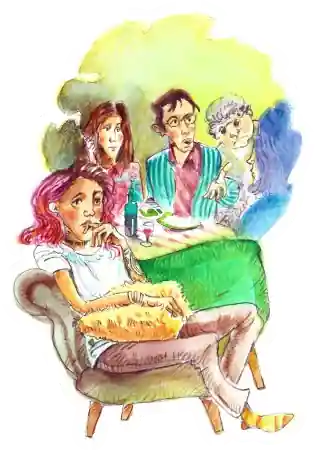
Feeling of not belonging
My parents never raised me to tell me, look, you're different, I never felt that. I somehow realized this myself through growing up, that I don't know, for example, that I celebrate Christmas and Easter differently than my best friend and that there are some differences. They never told me that. Primarily because my grandfather was a peace activist who was killed in the beginning, the war had not even started when he was killed and I never felt diversity on my skin and that my parents encouraged me to be something different, neither of a different religion nor of a different nationality.
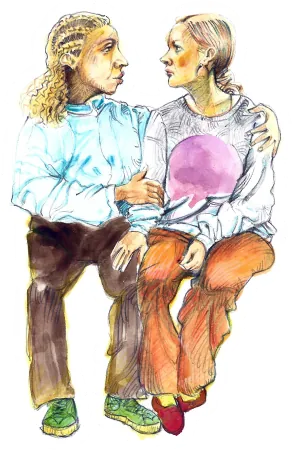
Importance of sharing stories
I have always been open to talking about my identity, experience, discrimination, even about my body. I often told people to ask me anything, word it however you want and then I will, then we will reformulate it together, if necessary, in some way into some construction that is inclusive, that is sensitized. A lot of people have good intentions and especially young people have good intentions, but they ask awkward questions or what I mentioned quite intimate questions or invasive questions, often because they are curious and because, okay, naturally they are interested, but often they are not educated. Then they prefer to talk to me as a person who has strong self-confidence and will not be swayed by any comments. I am always happy to talk about my identity and educate people, I think that is very, very important.
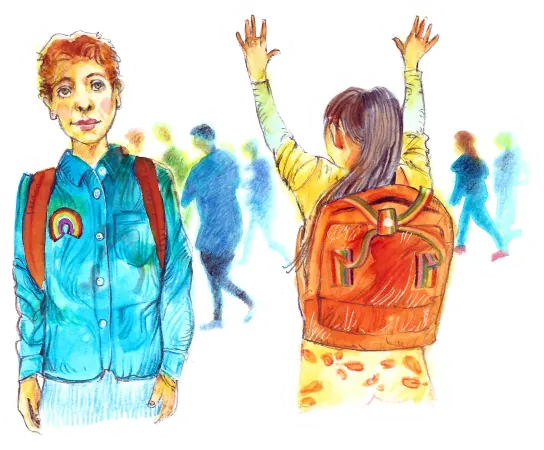
Wishful thinking
It would be great to start discussing acceptance there. Not about tolerance because it is the first step for me. I tolerate you, but that doesn't mean I accept you. We accept about acceptance, about differences, about all differences, we accept children with autism spectrum disorder, then adults, then we accept people who are queer, then we accept Roma, in general that we have some programs that provide you with the opportunity to meet different to people, that you are not afraid, that you have some information, that you talk about it. So that queer things are not sensationalized in the newspapers, but we simply talk about it quite normally. But this is already a problem for newspapers that make money from spectacular headlines. I am thinking that some public places could be safer so that people can come and express who they are, that they can be with the person they are with, hold hands, kiss. It would be wonderful if there were some kind of cafes, cinemas, theatres to make you feel safe, if they existed. For example, in a club, because I read that a club is a very unsafe place and neither the event organizers nor the insurance protects you, and that where people go to have fun, flirt, be with their friends or their partners is safe, so that no one comes to harass you. That the people who ensure your safety are instructed on how to protect people, and not throw them out of the club, cafe.
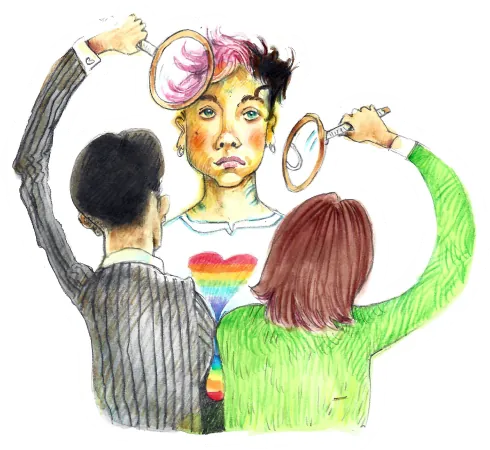
Experiences of discrimination
I can't even blame the children for the discrimination that I experienced from my friends, classmates because it all comes from their home, environment. As children of 6-7 years old, we do not have such a developed critical opinion, but we copy what is served to us in our environment, so what I experienced was really more verbal violence. Maybe not so much directly addressed to me, but collectively to my minority identity.
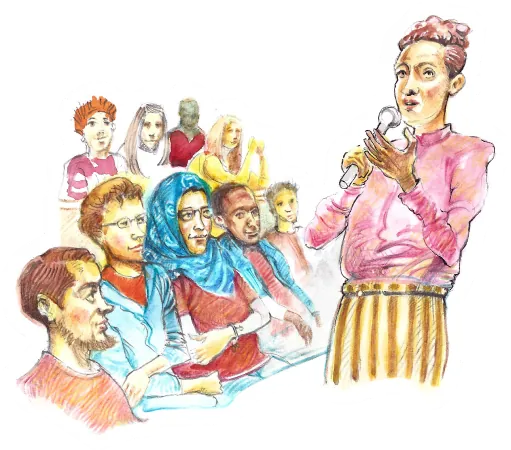
Success narratives - from victims to change makers
Seven years ago, at the age of 20, I began my journey as a volunteer. My first significant involvement was at the annual queer festival, which is a celebration of queer and feminist culture. I started modestly, assisting at the info-stand and putting up posters. Over time, as I delved deeper into trans issues from legislative, political, and cultural perspectives, my role expanded. I began participating in the Living Libraries initiative, which marked a turning point. My growing expertise led to invitations to give lectures and conduct workshops. Now, several years later, I have had the privilege of educating psychologists, teaching staff, secondary school students, and medical professionals about trans issues.
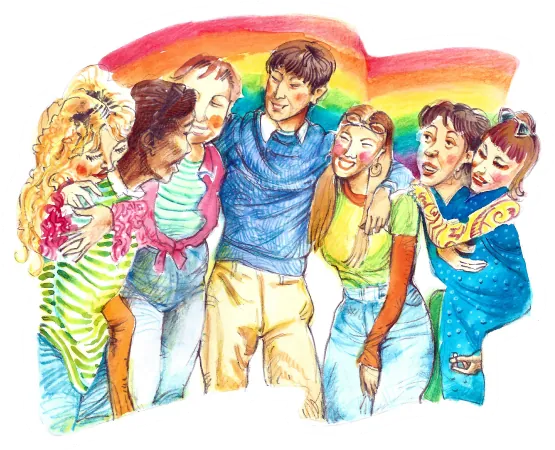
Stories of support and empowerment
Simply exposing yourself to the queer community, surrounding yourself with queer people, especially live, is something that has helped me tremendously in a way that is impossible to verbalize. The collective identity that we all share does not have to be the same, but in the sense of LGBTQ identity and energy that you simply feel, but that mutual understanding, you feel seen in the depths of your soul and that really helps me a lot.
